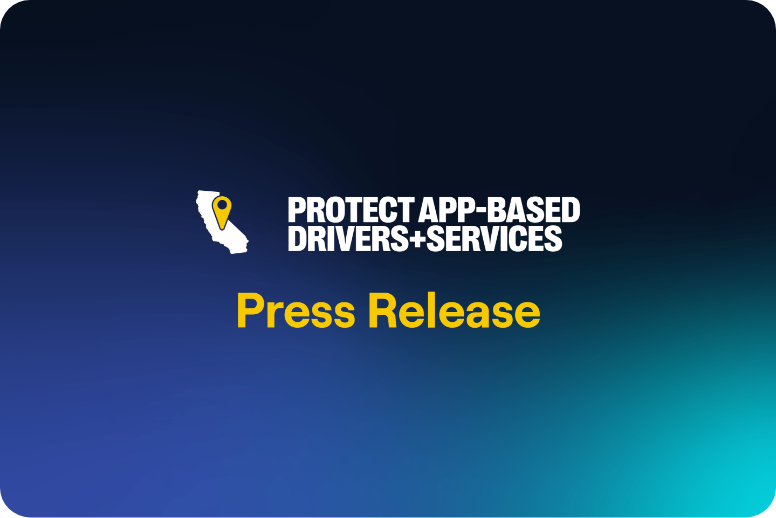62% of California Rideshare and Delivery Drivers Plan to Vote “Yes” on Prop 22, only 14% opposed
SACRAMENTO — A new poll released by Stride Health, a health care navigation startup focused on connecting individuals with health plans under the Affordable Care Act, added to the mountain of evidence showing that the vast majority of app-based rideshare and delivery drivers support Prop 22 and want to continue working as independent contractors with flexibility of when, where, and how long they work.
From the poll:
- California-based rideshare (80%) and delivery (84%) drivers overwhelmingly prefer to remain independent contractors, up from 77% in September.
- 62% of rideshare and delivery drivers plan to vote “Yes” on Prop 22, only 14% are opposed.
- Just 22% of rideshare and delivery drivers plan to continue driving or delivering if they had to work pre-assigned shifts.
The results of this study mirror Rideshare Guy driver polls conducted in November 2019, May 2020, and October 2020, which all concluded drivers overwhelmingly support remaining independent contractors. In fact, the most recent survey from October showed that, by a 6-1 margin, drivers prefer independence over employment status.
About Proposition 22
An independent study confirms an employment model would reduce the availability and affordability of rideshare and delivery services in California and eliminate up to 900,000 app-based jobs, a reduction of between 80-90 percent of drivers currently driving today. Without Proposition 22, if an employment model were forced on app-based drivers:
- Rideshare costs would increase for consumers by at least 25.9% and as much as 100% in some markets—meaning that a typical $15 ride across town would cost between $19 and $30;
- Food and grocery delivery costs would increase by at least 35.2% and potentially double in some markets;
- An increase in wait times and a decrease in reliability for customers—meaning an average wait time for rideshare of 7 minutes may double to 14 minutes, and food/grocery delivery of 40 minutes may double to 1 hour and 20 minutes or more; and
- A reduction of the customer base—meaning little or no service to most Californians living in rural or suburban areas of the state.
This will come at the worst possible time, when California is facing high unemployment and when app-based work opportunities will provide a lifeline for people to earn income. In addition, more than 71 percent of app-based drivers want to remain independent contractors, despite efforts by politicians to force them to become employees.
Proposition 22 would ensure driver flexibility, by protecting the ability of California’s one million app-based drivers to choose to work as independent contractors while providing new earning guarantees and benefits. These include:
- Prop 22 improves the quality of app-based work by requiring app-based platforms to provide drivers:
- Guaranteed minimum earnings (120% of California minimum wage) plus compensation toward expenses
- Funding for new health benefits for drivers who work at least 15 hours a week
- Occupational accident insurance to cover injuries and illnesses on the job
- Protection against discrimination and sexual harassment
- Prop 22 implements strong new public safety protections:
- Recurring background checks of drivers
- Mandatory new safety courses for drivers
- Zero tolerance for alcohol and drug offenses
- Making it a crime to impersonate a driver
The Latest News

Press Releases
California Supreme Court Unanimously Upholds Prop 22 in Historic Ruling
Date: July 25, 2024 Contact: Molly Weedn, (415) 209-4217 [email protected] California Supreme Court Unanimously Upholds [...] Read more
Press Releases
PADS Responds to Conclusion of Oral Arguments on Prop 22
Date: May 21, 2024 Contact: Molly Weedn, (415) 209-4217 [email protected] The Coalition to Protect App [...] Read more